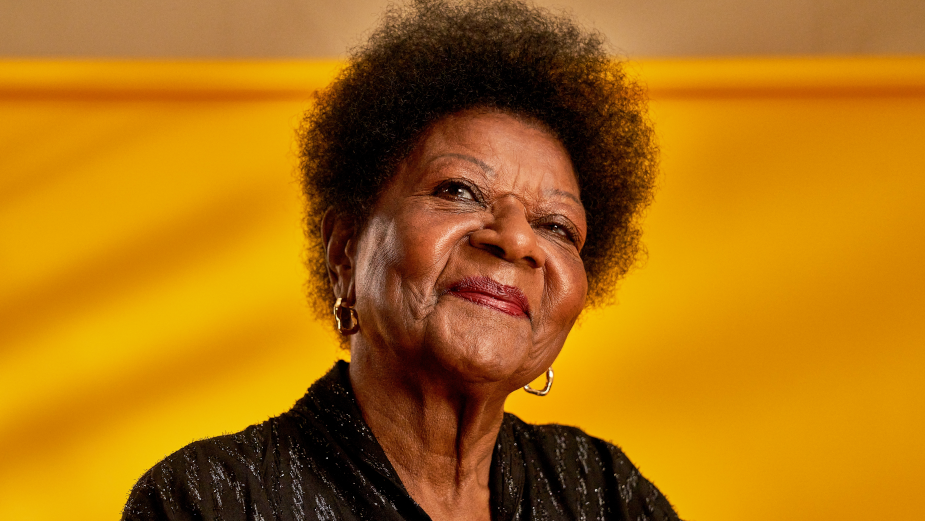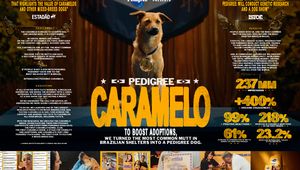
Johnnie Walker Puts Bossa Nova Legend Alaíde Costa Centre Stage

On October 8th, the stage at Carnegie Hall will be host to one of the brightest stars in Brazilian music for a tribute show in honour of a historic 1962 concert. Back then, a single performance helped put bossa nova on the world map, and featured many of the pioneers of the genre in Brazil: Tom Jobim, João Gilberto, Sérgio Mendes, and Carlos Lyra. But one major name was missing – Alaíde Costa.
Now nearing her 88th birthday, Alaíde, known as one of the ‘founding mothers’ of bossa nova, is ready to take what’s rightfully hers – the stage, alongside artists such as Seu Jorge and Daniel Jobim, who will be heading up "Bossa Nova: The Greatest Night,” as well as Roberto Menescal and Carlinhos Brown.
“I’m overjoyed to be able to take part in this celebration of bossa nova, this concert in New York, at Carnegie Hall, at Johnnie Walker’s invitation,” says Alaíde. “It’s wonderful to finally be able to sing on the stage that showed our music to the world in the 1960s. Now it’s time to show Alaíde Costa!”
Keep Walking: steps that move you forward
Johnnie Walker’s new campaign – which lends fresh meaning to the famous slogan 'Keep Walking' – was launched last week across multiple media. One of the central elements of the campaign is a series of initiatives supported by the brand designed to highlight and honour figures who took steps throughout their lives that affected the culture and the world around them, leaving a legacy for those who came in their wake, no matter if they were recognised for it. Alaíde Costa’s story is the first to be highlighted.
With creative by AlmapBBDO, the project will unfold in two stages. For the first, a 70-year 'Errata' was produced and published this past Sunday (October 1st) in a spread in the Folha de S. Paulo, recounting her career and recognising her relevance in history and culture – and not just in Brazil, across the world. The second stage will be Alaíde’s performance at Carnegie Hall.

In addition to paying tribute to a bossa nova legend who, despite her undeniable importance to Brazilian music, never got the recognition she deserved throughout her trajectory, the campaign reinforces the brand’s commitment to inspiring their public to take steps that have the potential to impact society and culture.
“With a seventy-year career of constant dedication to music, Alaíde is one of the best examples that we could possibly think of,” says Eric Strauss, the director of Scotch for Diageo in Brazil. “She’s inspired generation after generation, when it comes to keeping on walking and taking bold steps.”
Alaíde is currently recording the second album in a trilogy produced by Emicida, Pupillo (Nação Zumbi), and Marcus Preto, and has already released two singles from her latest batch: 'Moço,' by Marisa Monte and Carlinhos Brown, and 'Ata-me,' by Junio Barreto. She is currently touring across Brazil, with three different concert formats.
Bossa Nova
Bossa Nova was a movement in Brazilian popular music that emerged in the late 1950s, characterised by a strong influence of Rio de Janeiro's samba and North American jazz. Created by a group of artists from the South Zone of Rio de Janeiro, Bossa Nova is a highly unique style of music. With a colloquial tone in the voice, it generally deals with everyday themes, sung with a lower voice - almost whispers - blending typical samba harmonies with melodic inventions of jazz.
The word 'Bossa,' up to that point, was used to refer to 'breque' sambas, a style based on the talent for improvising sudden stops during the music to insert spoken lines. Since one of the distinctive features of Bossa Nova is precisely the characteristic of improvisation, that's where the name Bossa Nova comes from. The style became very popular worldwide in the early 1960s, when names like João Gilberto, Tom Jobim, Vinicius de Moraes, and Nara Leão solidified themselves as some of the genre's great representatives.















